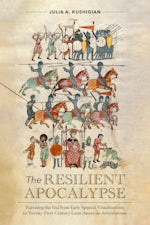Early Modern Visions of Space
France and Beyond
Edited by Dorothea Heitsch, Jeremie C. Korta
458 pp., 6 x 9, 15 images, notes, index
-
Paperback ISBN: 978-1-4696-6740-9
Published: December 2021 -
E-book PDF ISBN: 979-8-8908-6302-7
Published: December 2021 -
E-book EPUB ISBN: 978-1-4696-6741-6
Published: December 2021
Buy this Book
- Paperback $65.00
- E-Book $29.99
This title is not eligible for UNC Press promotional pricing.
Distributed for the University of North Carolina at Chapel Hill Department of Romance Studies
About the Authors
Dorothea Heitsch is teaching professor in French & Francophone Studies in the Department of Romance Studies at the University of North Carolina at Chapel Hill. She is the author of two monographs, Practising Reform in Montaigne’s Essais (2000) and Writing as Medication in Early Modern France: Literary Consciousness and Medical Culture (2017). She has published numerous articles and is the co-editor of two collections on early modern topics.
For more information about Dorothea Heitsch, visit
the
Author
Page.
Jeremie C. Korta is visiting assistant professor of French at Miami University. He submitted his doctoral thesis, “Aesthetics of Discovery: Text, Image, and the Performance of Knowledge in the Early-Modern Book,” in 2015. His research interests lie at the intersection of history of science, book history, and performance studies.
For more information about Jeremie C. Korta, visit
the
Author
Page.




